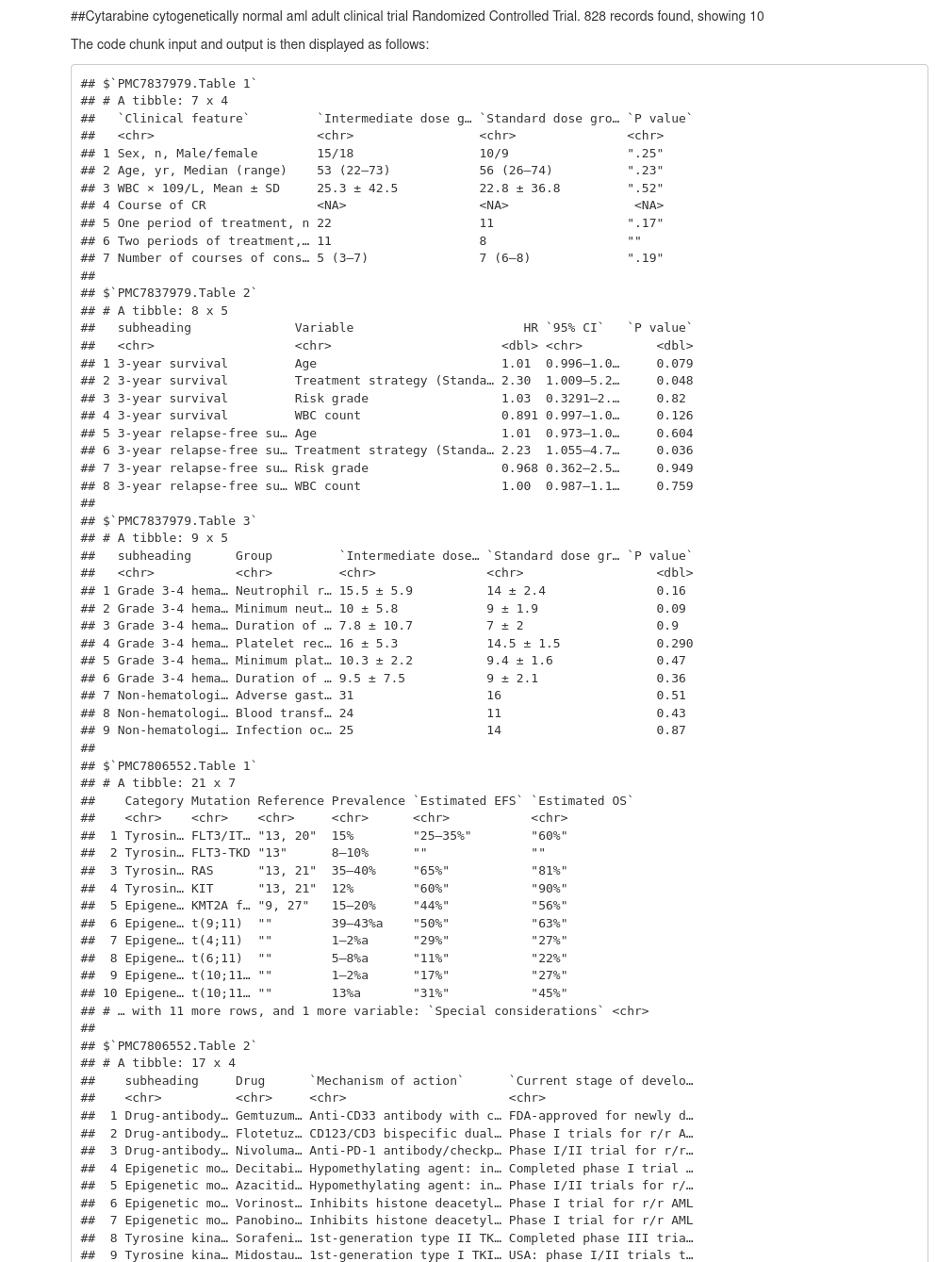This is what Im doing to generate a markdown so that all the things should be in one place.
How can i put these output into a datatable form which are more readable and easier to search.The list which is made are of different length. Each list has a series of table under it.
If there a way to convert these differing length list to data table format that would be really helpful
## Prepare for analyses
```{r,warning=FALSE,message=FALSE}
set.seed(1234)
library(europepmc)
library(tidypmc)
library(tidyverse)
#library(dplyr)
```
```{r setup, include=FALSE}
knitr::opts_chunk$set(echo = FALSE)
```
##Cytarabine cytogenetically normal aml adult clinical trial Randomized Controlled Trial. 828 records found, showing 10
```{r,include=FALSE}
b <-epmc_search(query = 'cytarabine cytogenetically normal aml adult clinical trial Randomized Controlled Trial OPEN_ACCESS:Y',limit = 10)
pmcids <- b$pmcid[b$isOpenAccess=="Y"]
docs <- map(pmcids, epmc_ftxt)
my_tables <- map(docs, pmc_table)
```
```{r}
names(my_tables) <- pmcids
```
The code chunk input and output is then displayed as follows:
```{r basicconsole}
source("flat.R")
L1 <- flattenlist(my_tables)
l.f <- Filter(function(a) any(!is.na(a)), L1)
l.f
#tibble:::print.tbl_df(head(df))
#n <- paste0("Valporic_", names(l.f), ".txt")
for (i in 1:length(l.f)) {
write.table(l.f[i], sep = "\t",row.names = FALSE,col.names = TRUE,file=paste0(names(l.f)[i], ".txt"))
}
UPDATE
I have manged to covert those tibble into dataframe
using this solution ##Outout
```{r}
abc <- mapply(cbind, l.f)
abc
But when it is rendered in the markdown the column formatting is gone. Now i have now dataframe inside list.
But still im not sure how to put that into a data table
**UPDATE 2.0 ** The better approach is to read those saved output as list of files into data table and then use it as markdown but so far it is taking only one ID only. My code.
tbl_fread <-
list.files(pattern = "*.txt") %>%
map_df(~fread(.))
knitr::kable(head(tbl_fread), "pipe")
Is it possible to put these files as such.
if a list of file are from one PMCID then those would be all in one column such as if PMCID one has 3 output then all of them should be one the same row. Then the next PMCID in the second one etc etc.
UPDATE new
I have managed to align the output into more readable format. But It seems that by default all the files assigned to multiple columns which would be the case given that im reading all the files together since my idea of using the list to data table didn't work.
If i can push or stack each unique PMCID over one another instead of all in one after another that would be. Good
knitr::kable(tbl_fread, align = "lccrr")

